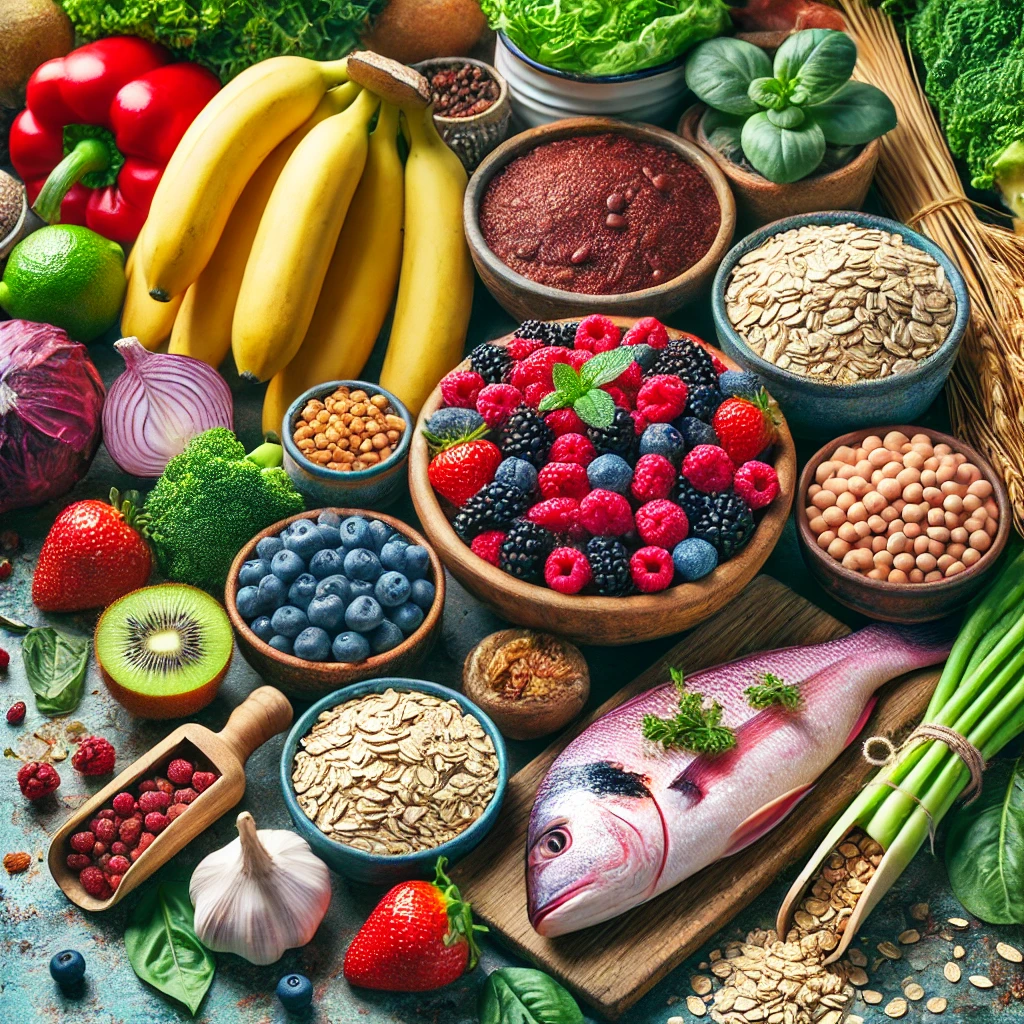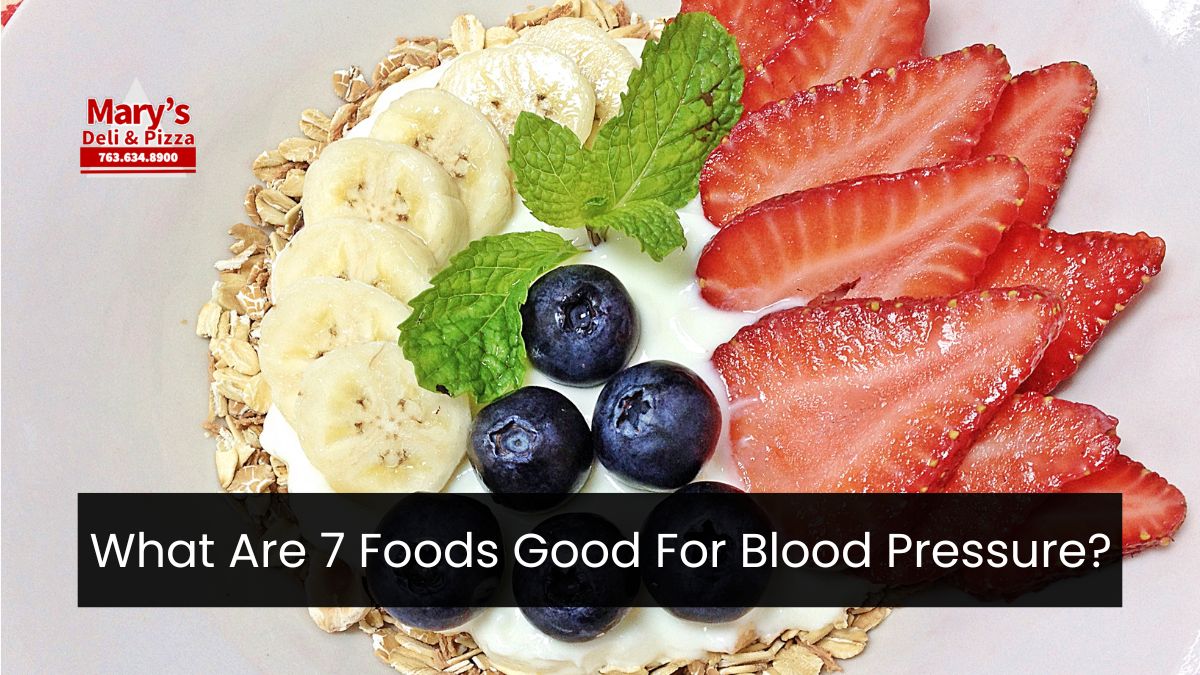Managing blood pressure is crucial for maintaining heart health and preventing cardiovascular issues like heart disease and stroke.
While medications play a role, a well-balanced diet rich in specific nutrients can naturally help lower blood pressure. Here are seven foods that are proven to support healthy blood pressure levels:
7 Best Foods For Blood Pressure

1. Bananas
Bananas are a powerhouse when it comes to potassium, a key mineral that helps regulate blood pressure. Potassium works by balancing out the negative effects of sodium and helping your body eliminate excess salt through urine, which reduces blood pressure.
A single banana provides around 375 milligrams of potassium, contributing significantly to the recommended daily intake for adults. It’s a simple and effective way to help maintain healthy blood pressure levels.
2. Berries
Particularly rich in antioxidants like anthocyanins, berries, especially blueberries, are known to improve heart health and reduce blood pressure.
Studies show that regularly consuming blueberries can lead to a decrease in systolic and diastolic blood pressure due to their ability to enhance blood vessel function and reduce arterial stiffness. Additionally, these antioxidants protect your body from oxidative stress, further benefiting cardiovascular health.
3. Oats
Whole grains like oats contain high levels of soluble fiber, which helps lower cholesterol levels and supports heart health. Studies suggest that consuming oats, which are rich in beta-glucan fiber, can reduce both systolic and diastolic blood pressure.
Starting your day with a bowl of oatmeal or adding oats to your diet can be an easy and effective way to help lower blood pressure naturally.
4. Leafy Greens
Leafy greens like spinach, kale, and Swiss chard are rich in potassium, magnesium, and nitrates, all of which help in controlling blood pressure. Nitrates in these greens help to relax blood vessels, improving blood flow and lowering pressure.
Magnesium, another important mineral in leafy greens, is essential for regulating blood pressure and supporting overall cardiovascular health.
5. Garlic
Garlic is more than just a flavor booster; it has potent heart-health benefits. It contains compounds like allicin that can help relax blood vessels, improving blood circulation and lowering blood pressure.
Research shows that garlic supplements, especially aged garlic extract, can significantly reduce both systolic and diastolic blood pressure in people with hypertension.
6. Legumes
Beans, lentils, and peas are excellent sources of protein, fiber, and potassium, making them beneficial for those trying to control blood pressure.
Studies have shown that consuming legumes regularly can lower blood pressure by inhibiting angiotensin-converting enzyme (ACE) activity, a process similar to how certain blood pressure medications work. The high fiber content also supports weight management, another important factor in managing blood pressure.
7. Fatty Fish
Rich in omega-3 fatty acids, fatty fish such as salmon, mackerel, and sardines help lower blood pressure by reducing inflammation and improving heart health.
Omega-3s are known for their ability to decrease triglycerides and reduce arterial stiffness, both of which contribute to better blood pressure control. In addition to their cardiovascular benefits, these healthy fats also promote overall well-being.
Tips For Incorporating These Foods Into Your Diet
- Bananas: Add them to your smoothies, oatmeal, or snack on them during the day.
- Berries: Top your morning cereal, yogurt, or salads with fresh or frozen berries.
- Oats: Enjoy a bowl of oatmeal for breakfast or use oats in baking.
- Leafy Greens: Include a variety of greens in your salads, soups, or smoothies.
- Garlic: Use fresh garlic in your cooking or opt for aged garlic supplements for stronger effects.
- Legumes: Add beans to soups, salads, or make them a side dish.
- Fatty Fish: Aim to include fatty fish in your meals at least twice a week.
Conclusion:
Incorporating foods like bananas, leafy greens, and nuts into your diet can significantly help manage and lower blood pressure. These foods are rich in essential nutrients like potassium, magnesium, and fiber, which promote heart health and blood vessel function.
By making mindful dietary choices and focusing on nutrient-dense options, you can reduce the risks associated with hypertension and support overall cardiovascular well-being. Adopting a balanced diet is a key step toward long-term heart health.

